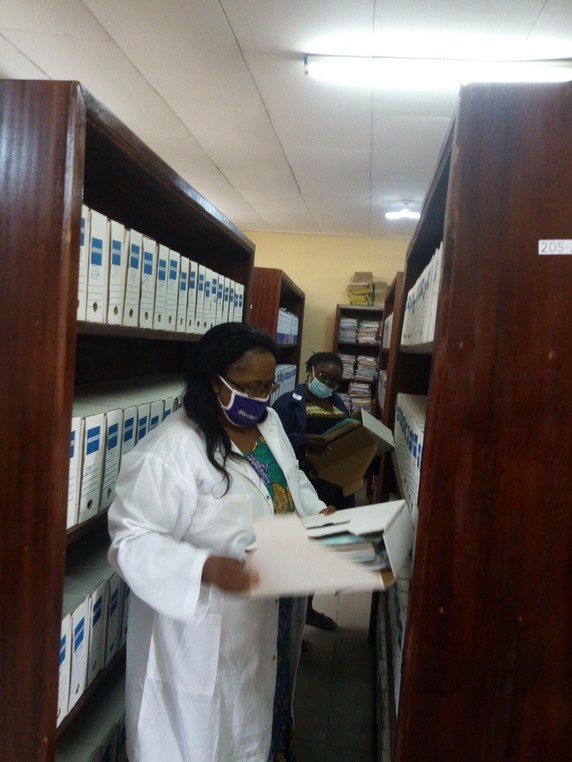Archives And Documentation

Introduction:
The Archive and Documentation Center, SOWEDA is open to both internal and external users. 80% are university students, 10% are staff and 10% are from different delegations. It exists to make available information to users when needed. It differs from libraries in both the types of materials they hold, and the way materials are accessed.
Three bureaus are involved here:
o Bureau for Archive and Documentation
o Bureau for Studies and Research
o Bureau for Cooperation
The objectives of Archive and Documentation Center, SOWEDA:
• To raise public awareness of the importance of records and archives;
• To raise awareness among senior decision-makers of the benefits of records management for good governance and development;
• To improve the public, private and public sectors' understanding of the necessity of long-term archival preservation and access;
• To showcase the unique, extraordinary, and rare documents preserved in an archival institutions; and
• To advance the image of records and archives to enhance their visibility globally.
Function of the SOWEDA Archive:
• Identify, appraise, preserve, and make available documentary materials of long-term value (essential evidence) to the organization or public that the archives serves
• Ensure the accountability of SOWEDA records that are been preserved.
• Preserve unique or collectible documents properly and no material is lost.
• Serve as memory institution for an organizational culture
• Support scholarly, administrative, and personal research
How to consult the SOWEDA Archive.
In order for a User to request for a document, the User will need to fill a consultation form. This form enables the Archivist to know the type of information He/She is looking for. The information is being retrieved from the Archival repository with the help of the database. The user could either consult the document at the Center or a photocopy is made.
In the case where the document is to be taken out of SOWEDA, the Users gives a photocopy of His/Her identity card and other personal information.
Users must indicate to the archival staff of the date that material will be returned.
Users are ask to handle materials carefully.
Balance your work flow with the policies of the Center.
Ongoing Archival Project:
The process of digitalization is ongoing. The first phase has been completed that is documents have been scanned pending the operation of the software. With this digitalization of information, when information is consulted, the Archivist just print and the User will have a printed copy.
How useful has it being to the internal and external users:
• It serves as a place for students to get some reliable information concerning their field of studies.
• It has serves as a focal points for promoting intellectual freedom.
• It has help the society to retaining some information in time and over time, especially through digital preservation processes.
• Documents safeguarded can easily be reused by the staff.
Some of the information you can find in the SOWEDA Archival System
• Monitoring Reports
• Field Reports
• Project Completion Report – IRDP, LFDP, RUMPI
• SOWEDA old and new organigramme
• SOWEDA old and new personnel status
• SOWEDA old and new financial provision
• SOWEDA Decree of creation
• SOWEDA 1987 to 2012 prospective
• Aide memoirs
• Minutes
• Quarter and Annual Reports from
• Appointments and Decisions
• Rural development forum SW
• Working documents
• Presentation of AIVDP
• Pre project report rumpi phase II
• AIVDP project concept report
• IRDP documents, on crop and seed production, micro credit, chemical etc
• Personnel files of former staff
• Agreements with CIG, partners etc
• MINADER agreements on maize production
• Bakassi Project
• Akwaya Project
• SOWEDA Focus – all editions
• Magazines
• Cameroon tribune newspaper from 2015 -
• Small projects on Maize,
• Convention restructuring SOWEDA 1998
• All other documentation regarding formatting, printing, scanning, cutting etc (not free)
• etc
